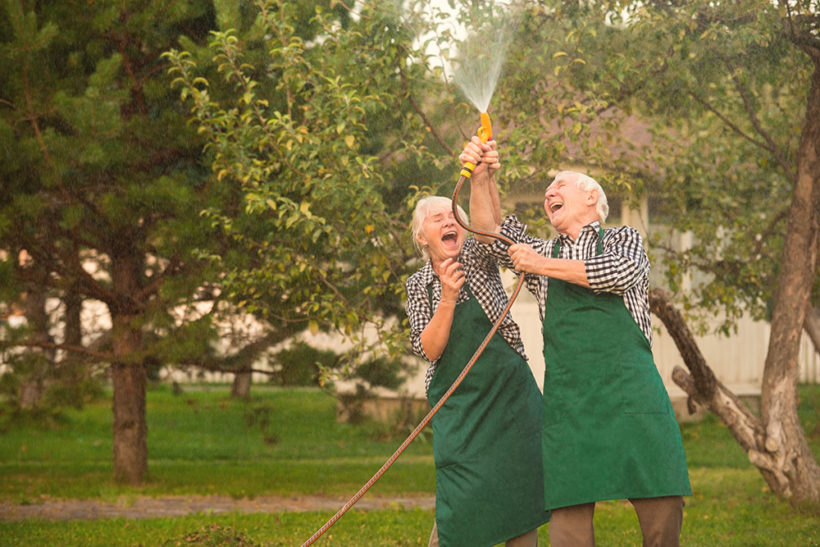
A Bountiful Life Springs from the Garden
Stay Fit, Stay Happy, and Build a Community in Your Yard
In recent years, we’ve heard a lot about the mal-effects of sitting for long periods, coupled with large quantities of food devoid of nutritional benefits. To combat the health risks of a modern lifestyle, we highly recommend gardening.
How Can Gardening Help my Health?

Gardening is not only a great way to bring healthy produce into your home, but it’s also a fantastic way to stay active. There are many health benefits that come as a result of gardening, both physical and mental.
Physical benefits of working a garden include consistent physical activity. Gardening requires walking, lifting, digging, standing, crouching, and bending over, sometimes, for long periods; these activities specifically enhance a person’s cardiovascular system, flexibility, and overall physical endurance. Less apparent may be the benefits to one’s grip strength and dexterity, and the creation of endorphins in the brain. Studies show that a lifetime of exercise and movement is the best choice for maintaining one’s health. As gardening is mainly an outdoor activity, gardeners also benefit from exposure to the sun, which is the greatest natural source of vitamin D.
Working in a garden for thirty minutes, five days a week has been linked to lower risk of heart disease and stroke. And, for people with chronic leg or back pain, there are many ways to modify your garden to make it more manageable, such as creating raised beds or by building vertical garden boxes. These are just two of the ways that individuals with limited mobility can help themselves stay active and continue doing what they love.
A Tended Garden Breeds a Fertile Mind

As previously stated, gardening not only helps to maintain physical health but also aids in maintaining your mental health. Studies indicate that tending a garden helps to combat depression and loneliness. When one tends a garden, they are caring for themselves but also the living plants in that garden. Modern society severely undervalues the importance of having something to care for and building routines outside of work. Tending a garden offers us the chance to fulfill both of these requirements. Plants are living things, and it’s been proven that the more time we spend surrounded by living things, the less lonely we feel. Over time, we build relationships with our gardens and care for their health as we would our friends and family, and, of course, nurturing our gardens results in nuritioning our loved ones.
Time spent outdoors relieves stress and helps to regulate emotions. Many rehabilitation facilities incorporate gardening into their programming to help their patients find a new outlet. This same principle applies to everyone. Tending a garden can be a release of pent-up stress from work, strained relationships, or the loss of a loved one. Though a garden will never replace the love that we received from those we’ve lost, it can provide us with a distraction from our grief. Working the soil helps us to work through our pain, and spending time in the sun has the effect of brightening our day.
Beyond the personal health benefits of a garden, a bountiful harvest can help feed a community. Giving the gift of nourishment to our neighbors is a great way to build strong relationships and strengthen our community. A bountiful life springs from the garden.


